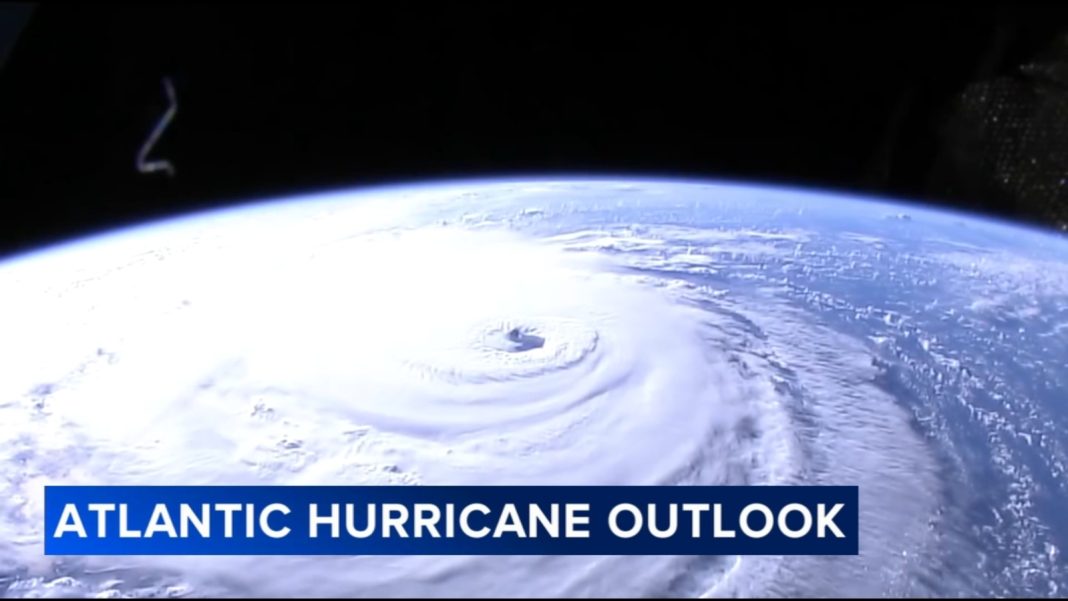2024 Hurricane Season Forecast: Record-breaking Number of Storms Expected
Introduction:
The National Oceanic and Atmospheric Administration (NOAA) recently released its highly anticipated hurricane forecast for the upcoming 2024 hurricane season. The forecast, which is the highest ever issued in May, predicts an increase in the number of storms across all categories. This article will provide a detailed analysis of the forecast and explore the potential factors contributing to this heightened activity.
Unprecedented Hurricane Outlook:
According to NOAA scientists, the 2024 hurricane outlook is alarming, with expectations of between 17 and 25 named storms, compared to the average of 14. Additionally, they forecast between eight and 13 hurricanes, surpassing the average of seven, and between four and seven major hurricanes, compared to the average of three. This significant increase in storm activity raises concerns for both authorities and communities residing in hurricane-prone areas.
Factors Influencing Storm Formation:
Multiple factors contribute to the increased number of storms predicted for the upcoming hurricane season. First, near-record warm ocean temperatures in the Atlantic Ocean provide a favorable environment for storm formation. These elevated temperatures, attributed to human-induced climate change, fuel more powerful tropical cyclones that produce extreme precipitation.
Furthermore, the development of a La Niña event is expected to reduce wind shear in the western Atlantic. Wind shear, the difference in wind speed and direction at different altitudes, inhibits storm development. With reduced wind shear, storms have a higher chance of intensifying and becoming hurricanes.
The African monsoon season also plays a role in initiating storm formation. Above-average monsoon activity over Africa leads to increased thunderstorm activity, which can eventually develop into tropical systems in the Atlantic.
Climate Change’s Impact on Storms:
Researchers have highlighted the significant impact of climate change on the Atlantic hurricane season. Rising surface ocean temperatures caused by human-induced climate change contribute to the intensification of tropical cyclones. Warming oceans provide the energy needed for storms to strengthen, resulting in more extreme precipitation.
Additionally, rising sea levels amplify the destructive power of tropical storms through storm surge. Climate change is a significant factor in sea level rise, which contributes to the increased vulnerability of coastal areas.
Global warming also increases atmospheric moisture, leading to higher precipitation rates during tropical storms. Warmer air can hold more water, resulting in heavier rainfall associated with hurricanes.
The Future of Hurricane Intensity:
Recent studies suggest that while the total number of tropical storms each year may decrease or remain constant, the intensity of the storms is expected to increase. This shift towards more intense storms, both in strength and impacts, is attributed to warming higher in the atmosphere, in addition to surface warming. The reduced temperature difference as one moves up through the atmosphere creates less favorable conditions for storm generation.
Implications and Recommendations:
With the anticipation of another active hurricane season, individuals and communities in hurricane-prone regions should take precautions to mitigate risks. Insurers and homeowners are urged to prepare and implement strategies to minimize potential damages. CoreLogic, a property solutions firm, advises proactive measures to reduce vulnerability to hurricanes.
Conclusion:
The 2024 hurricane season is expected to bring an unprecedented number of storms, with NOAA issuing its highest May forecast on record. The influence of climate change, including rising ocean temperatures, sea level rise, and increased atmospheric moisture, contributes to the intensification and frequency of hurricanes. As we face the reality of a changing climate, it is crucial for individuals and communities to prioritize preparedness and mitigation efforts to protect lives and property from the potentially devastating impacts of these powerful storms.


